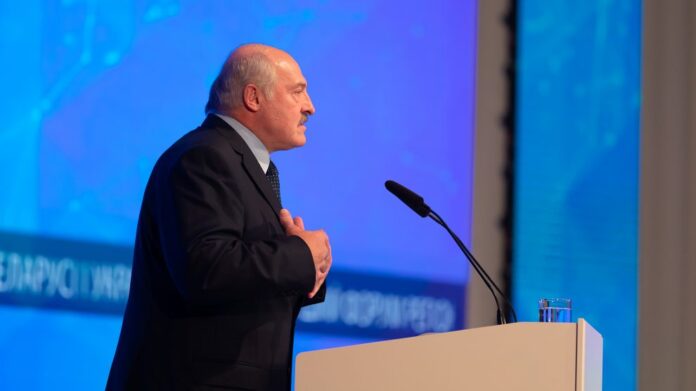
From the news website emerging-europe.com
Eastern Europe is home to several authoritarian leaders who run repressive regimes. Therefore labelling Alexander Lukashenko as “Europe’s last dictator” is lazy, simplistic, and wrong, argues Craig Turp-Balazs at Emerging Europe (March 21). Since August last year, few clichés have been more prominent than “Europe’s last dictator”, a label directed at the president of Belarus, Alexander Lukashenko.
The author reminds us that on August 9, 2020, Lukashenko declared himself the winner of a presidential election with an implausible 80 per cent of the vote. By any objective measure, the opposition candidate Svetlana Tikhanovskaya comfortably won the election. Widespread protests followed immediately, met with brutal force by the Belarusian security services which remain loyal to Lukashenko. Tikhanovskaya was forced into exile in Lithuania, her husband (who had been barred from standing in the election himself) and campaign team arrested along with tens of thousands of protesters.
Journalists have been jailed simply for covering the anti-Lukashenko demonstrations. Hope for democratic change in Belarus remains, but is fading fast. As such, there is no doubt whatsoever that Belarus is a dictatorship, and that Lukashenko, who has been president since 1994, is its dictator.
According to Freedom House, a US-based organization that conducts research and advocacy on democracy, political freedom, and human rights, there are at least two other countries in Eastern Europe which are classed as “Not Free”: Azerbaijan and Russia.
In Azerbaijan, power remains heavily concentrated in the hands of Ilham Aliyev, who has served as president since 2003, and his extended family. Freedom House claims that, “corruption is rampant, and the formal political opposition has been weakened by years of persecution. The authorities have carried out an extensive crackdown on civil liberties in recent years, leaving little room for independent expression or activism.”
As in Belarus, Azerbaijan goes through the motions of holding elections but these are neither free nor fair, according to Freedom House. The most recent parliamentary poll, in February 2020, saw the ruling New Azerbaijan party win a comfortable majority, in an election that the Organization for Security and Co-operation in Europe (OSCE) described as “devoid of [the] political engagement that is essential to a competitive environment in which voters have a genuine choice.”
As for Russia, to suggest that Vladimir Putin is anything but a dictator is laughable, writes Turp-Balazs. “With loyalist security forces, a subservient judiciary, a controlled media environment, and a legislature consisting of a ruling party and pliable opposition factions, the Kremlin is able to manipulate elections and suppress genuine dissent. Rampant corruption facilitates shifting links among bureaucrats and organised crime groups,” says Freedom House.
The Russian regime is also not shy of – allegedly – attempting to assassinate its opponents, most notably Alexei Navalny, who claims that his near-fatal poisoning with the Soviet-era nerve toxin novichok last year was carried out by agents working for the Kremlin. Having dared to survive the poisoning, Navalny is currently serving a prison sentence in a penal colony 100 kilometres from Moscow.
Aliyev and Putin are undisputedly members of the global collective of dictators.





























